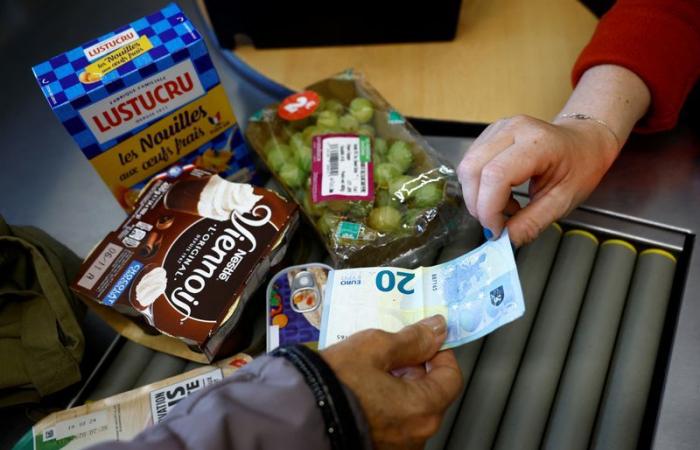Mike Dolan provides the outlook for the US and global markets for the day ahead.
Europe's darkening economy, trade and politics have sent the euro tumbling to a two-year low, just 3% of parity with the dollar, as post-election optimism American cryptocurrencies allowed bitcoin to flirt with $100,000 for the first time.
Round numbers often act like magnets in financial markets.
But what appears to be a perfect storm for the euro zone – and its largest economy, Germany, in particular – has resulted in the biggest monthly change in the transatlantic exchange rate in two years.
Faced with potential trade wars with the United States and China, renewed geopolitical tensions in the East, rising energy prices and elections in Germany early next year, the he euro has lost 4% so far in November, marking its biggest monthly loss since April 2022, the month after Russia invaded Ukraine.
With a new round of disastrous business surveys showing a contraction in activity in Germany and the euro zone this month, the euro plunged to its lowest level in two years, at $1.033, on Friday. Pressure is mounting on the European Central Bank to accelerate its easing, as the Federal Reserve hesitates to further cut interest rates in the United States.
Money markets are now leaning towards a fourth ECB rate cut next month, by 50 basis points to 2.75%, while futures still price only a 50% chance that the Fed take action next month.
At just under 230 basis points, the yield spread between U.S. and German two-year bonds is also the widest since 2022.
In addition to the latest gloomy economic surveys, Russia's increasingly specific nuclear threats and its extraordinary missile strikes on Ukraine this week have once again shaken the continent, with Moscow seeing into the isolationist stance of the incoming US administration of Donald Trump an opportunity to strengthen his position.
Wholesale gas prices in Europe remained near their highest annual levels after new US sanctions on Russian bank Gazprombank sparked fears over what remains of Russia's gas supplies, as cold temperatures led to reductions in Europe's gas reserves.
But the prospect of Trump catalyzing global trade wars in which Europe would be most exposed was perhaps the biggest economic cloud gathering.
ECB chief economist Philip Lane on Thursday issued the starkest warning yet about the consequences of a trade war. He said global economic output would suffer a “considerable” loss, while any immediate boost to inflation would fade after a few years.
The euro's losses, meanwhile, have catapulted the dollar higher across the planet – the dollar index also reached its best levels since 2022 and is now up more than 6% since the start of the 'year. The Chinese yuan briefly hit its lowest level since July.
With another round of positive U.S. labor market results in the weekly unemployment claims series on Thursday, Treasury yields remained steady at around 4.4%.
But with no sign of Mr. Trump's choice for Treasury secretary, the rising dollar poses something of a headache for a new protectionist administration. The latest reports suggest that former Fed Governor Kevin Warsh is still the favorite to get the job – until Fed Chairman Jerome Powell's position becomes vacant, at least.
Bitcoin hit a new record high of $99,380 on Friday, and is firmly aiming for the $100,000 mark, on hopes of a more favorable regulatory environment under Trump.
Mr. Trump embraced digital assets during his campaign, promising to make the United States the “crypto capital of the planet” and amass a national stockpile of bitcoin.
Cryptocurrency investors see an end to increased scrutiny of Gary Gensler, chairman of the Securities and Exchange Commission, who said Thursday he would leave office in January, when Mr. Trump takes office.
Overseas stock markets were mostly in the red on Friday, with European stocks falling and Chinese stocks underperforming with losses of more than 3%.
Elsewhere, Gautam Adani's Indian conglomerate could face a funding crunch after a U.S. arrest warrant for its billionaire founder in connection with an alleged $265 million bribery scheme, analysts said. credit analysts, some banks considering stopping granting new credit to the group.
On Wall Street, stocks rebounded Thursday after the brief hesitation of Nvidia, whose exceptional results led to profit-taking on its record gains.
The main developments that should guide US markets later on Friday:
*US business flash surveys for November from S&P Global and the final November consumer sentiment survey from the University of Michigan.
* Speech by Michelle Bowman, Governor of the Federal Reserve; Speech by Isabel Schnabel, member of the board of directors of the European Central Bank; Speech by Martin Schlegel, President of the Swiss National Bank.
* Results of American companies: Intuit






